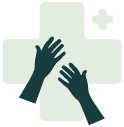
Body language, facial expressions, and tone of voice can all impact how your words are received. Being aware of your own nonverbal cues and being attentive to those of others can enhance mutual understanding. For instance, if someone appears withdrawn or tense, it may be a sign that they are uncomfortable discussing a topic, and you can adjust your approach accordingly.
1. Depression is more than just feeling sad or having a bad day it’s a serious mental health condition that can affect every aspect of life.
Understanding its signs and symptoms is crucial for recognizing when you or someone you care about may need help. By increasing awareness, we can create a supportive environment that encourages individuals to seek the assistance they need.
2. One of the primary signs of depression is a persistent feeling of sadness or hopelessness that lasts for weeks or longer.
This emotional state can often be accompanied by a loss of interest in activities that once brought joy. For some, simple daily tasks can feel overwhelming, leading to a significant decline in motivation and energy. Physical symptoms may also manifest, such as fatigue, changes in appetite, or sleep disturbances, including insomnia or oversleeping. Recognizing these signs early can facilitate timely intervention.
In addition to emotional and physical symptoms, depression can also lead to cognitive changes. Individuals may experience difficulty concentrating, making decisions, or remembering details. This can impact work performance and personal relationships, contributing to feelings of inadequacy and frustration. It’s essential to understand that these symptoms are not just a result of personal weakness; they are part of a complex mental health condition that requires compassion and understanding.
3. Fortunately, there are effective solutions and treatments available for depression.
Therapy, particularly cognitive-behavioral therapy (CBT), has been shown to be beneficial in helping individuals understand their thoughts and behaviors and develop coping strategies. Additionally, medication may be prescribed in some cases to help regulate mood. Lifestyle changes, such as regular exercise, a healthy diet, and mindfulness practices, can also play a significant role in managing symptoms. Support from friends and family can provide a strong foundation for recovery, reminding individuals that they are not alone in their struggle.
4. If you or someone you know is experiencing symptoms of depression, it’s crucial to seek help.
Mental health professionals can offer guidance tailored to individual needs, providing both support and strategies for coping. Remember, recognizing depression is the first step toward healing, and with the right resources, individuals can reclaim their lives and find joy again. Understanding the signs, symptoms, and solutions of depression empowers us all to foster a more compassionate and supportive community.

